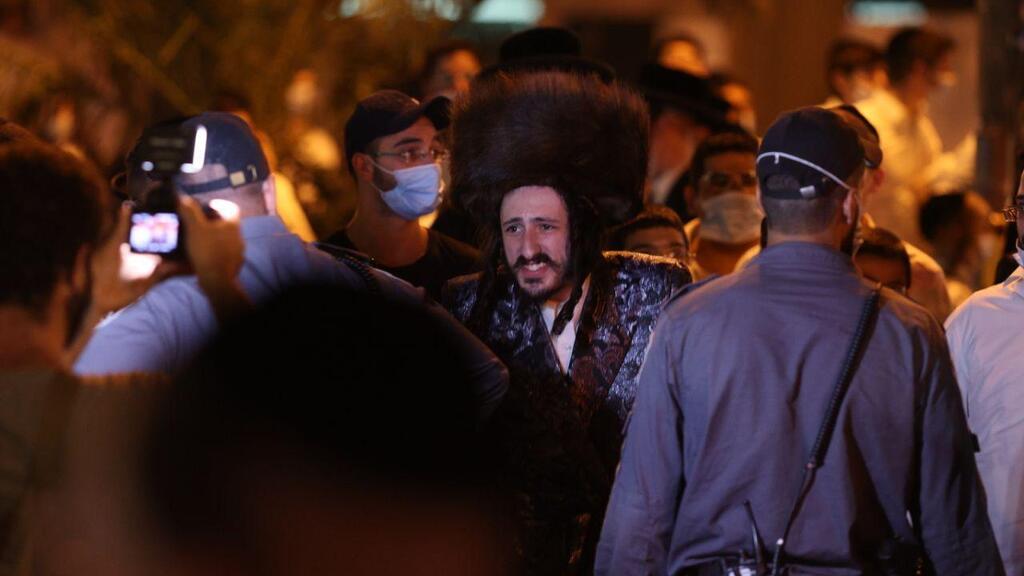Getting your Trinity Audio player ready...
The coronavirus pandemic has ripped off all the masks to reveal the true nature of the Israeli society, which as it turns out has been cracked open and torn apart.
From the poor leadership skills of our public officials, from the lack of fellowship to the outright hostility among Israel’s many tribes.
6 View gallery
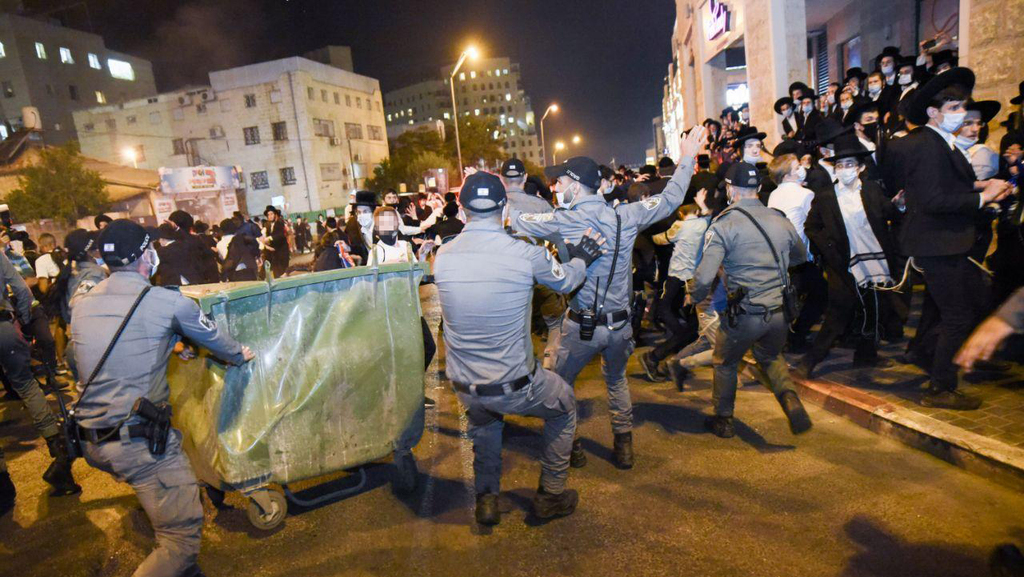

A demonstration by Jerusalem's Romema residents in protest of the closure imposed on the Ultra-Orthodox neighborhood
(Photo: Shalev Shalom)
This is the true legacy of Prime Minister Benjamin Netanyahu’s rule - administrative chaos and a split society. That split is exceedingly noticeable when it comes to the relationship between the Haredi community and the secular public, where hostilities have recently reached an all-time high.
Traditionally, the secular public has always been in awe at the ultra-Orthodox's political ability to secure government funds no matter the budget, or lack thereof - despite their low contribution to the economy, and their sweeping refusal to enlist to the IDF.
This comes in conjunction with political and consumer pressure, and outrageous religious coercion, such as the Supermarkets Act which bans markets from working on Shabbat.
6 View gallery
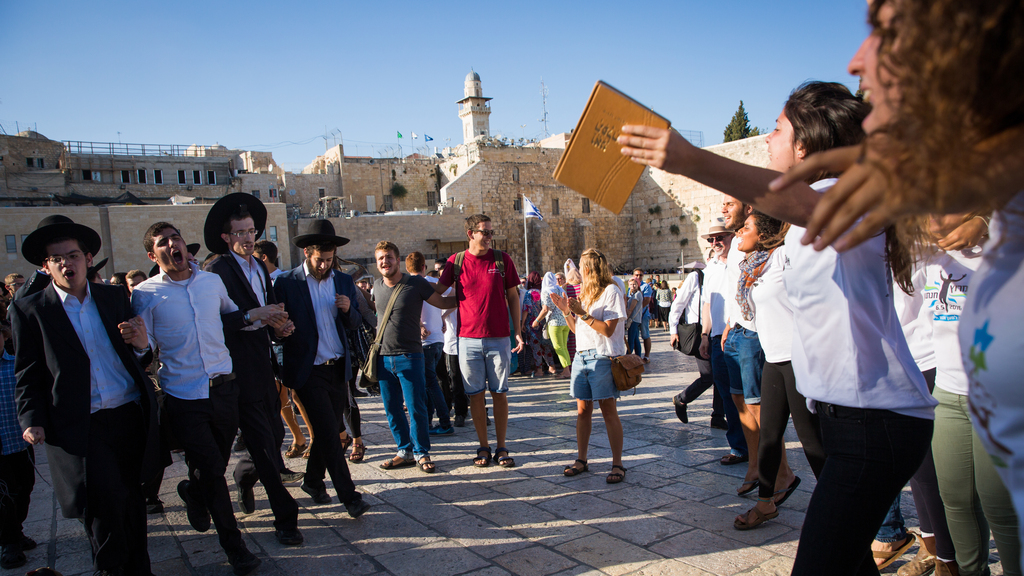

A confrontation in the Western Wall between Ultra-Orthodox youths and Reformist youths
(Photo: TPS)
Now, add to this the sector’s priorities blatantly favoring religious rituals over public health.
The coronavirus guidelines have been mangles and twisted due to the insistence of several ultra-Orthodox politicians, and Netanyahu’s willingness to appease them, for their way of life not to be altered despite the health crisis.
Even when data clearly showed that the infection rate in synagogues and yeshivas is exceptionally high, the sector still managed to secure exemptions for prayer and studies in religious institutions.
In addition, between the two waves of the pandemic, the ultra-Orthodox politicians refused to accept partial closures of their communities with high contagion rates, in accordance with the national traffic light outline, which could have prevented a general lockdown.
6 View gallery
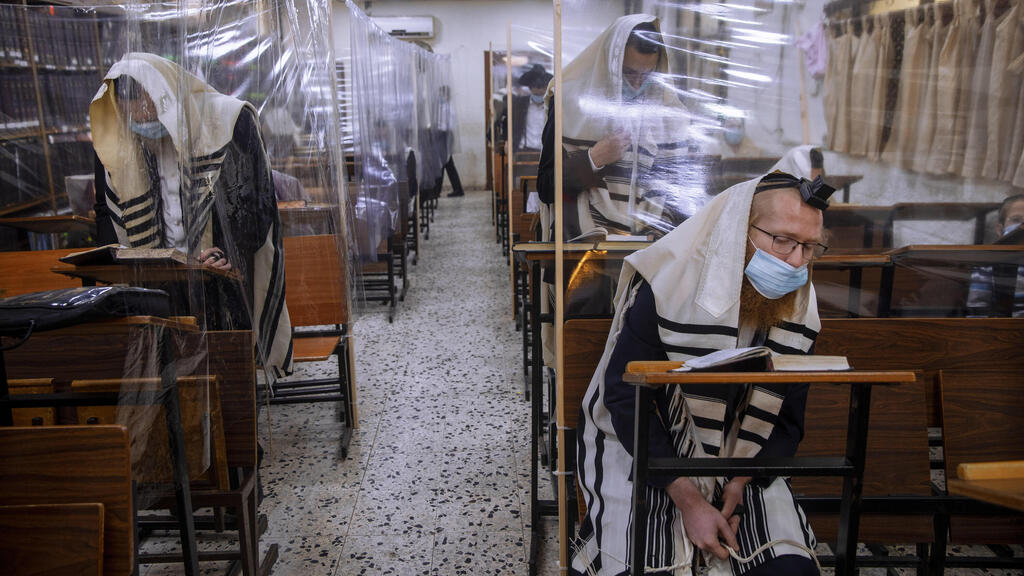

In this Monday, Sept 21, 2020 file photo, ultra-Orthodox Jews wear face masks during a morning prayer in a synagogue separated by plastic partitions, in Bnei Brak
(Photo: AP)
They also insisted on flying to the Ukrainian city of Uman for their Rosh Hashanah pilgrimage, and now, when they failed to get their wishes, they announced they would blatantly ignore the health regulations and the law.
We are now experiencing an increase in infections as a result of the sector's many health violations during Rosh Hashanah, and similar violations experienced during Yom Kippur will most likely cause another outbreak. Not to mention the upcoming holiday of Sukkot and Simchat Torah.
This will all culminate in an even longer nationwide lockdown for all of us.
Let us remember, however, that hate and hostility is not the solution. The secular public must understand that the differences between them and the ultra-Orthodox are dramatic.
The pandemic has revealed how little connection there actually is between the two sectors, and how different their values are in all aspects of life. The gap is too deep and only serves to cause unnecessary friction.
A way must be found to separate the two communities, perhaps by turning Israel into a federation with sectoral subdivisions. Let the ultra-Orthodox live their own lives, with no mutual coercion, where each sector provides for itself.
We will not demand they study core subjects such as math, and they will not coerce us to live in a predominantly religious country.
Such a separation will not stem out of hate, it will be more akin to a fighting couple, who understands that separation is necessary for the mental wellbeing of both sides.
6 View gallery
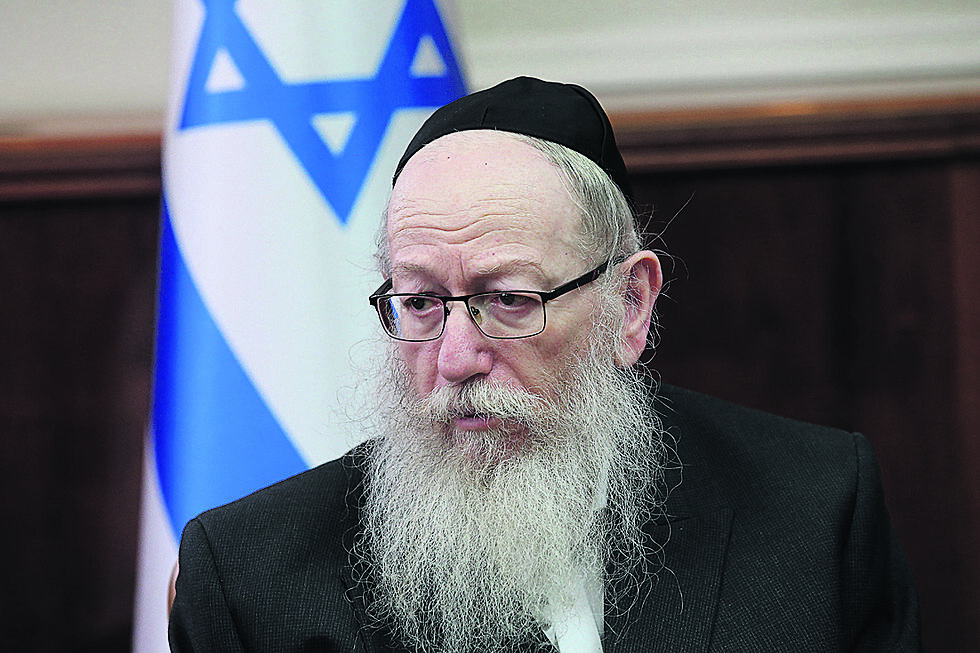

Former MK Yaakov Litzman resigned after the government's approval of restrictions on synagogue prayers during Rosh Hashanah
(Photo: Alex Kolomoisky)
Racism also plays no part in this proposal. We will happily accept those from the religious sector who wish to live a secular lifestyle, and they would surely accept those of secular origin who wish to live a religious life.
In case of a humanitarian crisis, both sides will be able to show a gesture of goodwill and offer aid. But all in all, the two sectors will be completely separate from each other.
Such a model can be implemented in other parts of Israeli society.
For instance, in the viral video published on Yom Kippur, Aline Shachar - a Facebook personality known for her hate of the political left - suggested the anti-government protesters are responsible for the increase in infections and the country needs to separate from the "left-wingers".
On the other side of the political spectrum, however, many would love to live without the religious obsession of settlers regarding annexation of the West Bank.
6 View gallery
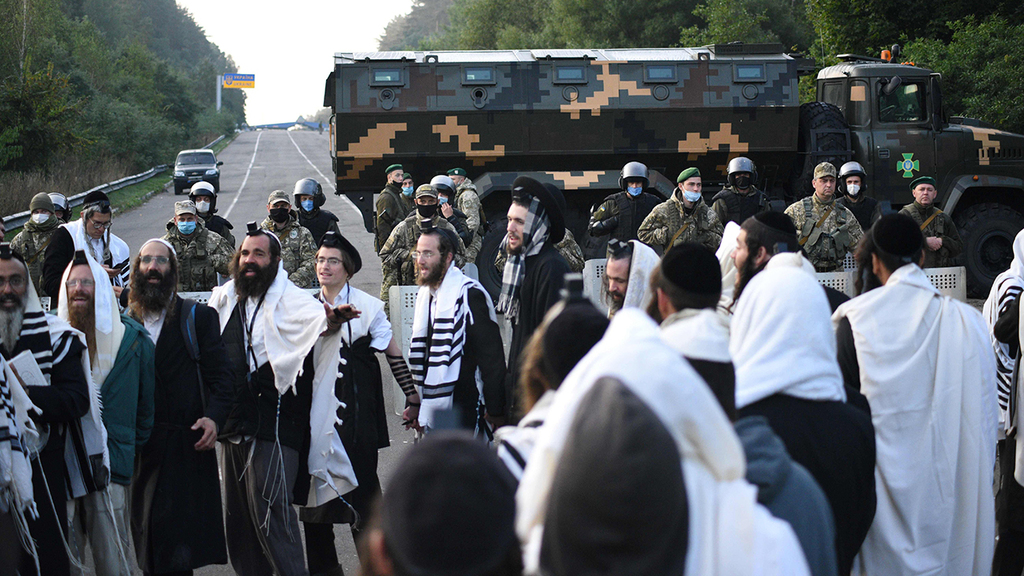

Breslov followers stuck in the Ukrainian border after attempting to reach the city of Uman
(Photo: AFP)
We have seen that living together has brought us nothing but hostility and infighting, separation might actually be healthier for us all.
The idea of a nation-state may no longer be a viable framework for a country. We can see this in the tension between the liberal public of Budapest, Prague and Warsaw and the nationalist governments of Hungary, the Czech Republic and Poland.
And it is even more evident in socially divided countries such as the United States and Israel.
The threat to Israel's security is the only so-called ”glue” that binds us all together. The recent normalization agreement with the UAE and Bahrain might soon change this as well.
One thing is certain, living together has been proven all but impossible.
Dr. Ram Fruman is the head of the Secular Forum


